Related Research Articles
Educational essentialism is an educational philosophy whose adherents believe that children should learn the traditional basic subjects thoroughly. In this philosophical school of thought, the aim is to instill students with the "essentials" of academic knowledge, enacting a back-to-basics approach. Essentialism ensures that the accumulated wisdom of our civilization as taught in the traditional academic disciplines is passed on from teacher to student. Such disciplines might include Reading, Writing, Literature, Foreign Languages, History, Mathematics, Classical Languages, Science, Art, and Music. Moreover, this traditional approach is meant to train the mind, promote reasoning, and ensure a common culture.

Benjamin Franklin Cummings Institute of Technology is a private college of engineering and industrial technologies in Boston, Massachusetts. It was established in 1908 with funds bequeathed in Benjamin Franklin's will.
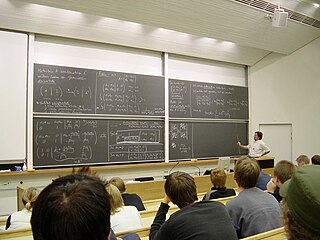
In contemporary education, mathematics education—known in Europe as the didactics or pedagogy of mathematics—is the practice of teaching, learning, and carrying out scholarly research into the transfer of mathematical knowledge.

Los Angeles Trade–Technical College is a public community college in Los Angeles, California. It is part of the Los Angeles Community College District and is accredited by the Accrediting Commission for Community and Junior Colleges (ACCJC), American Culinary Federation, and League of Nursing, among others.
Delhi Public School Society or DPS Society, is a chain of schools. The descriptor "Public School" references the model of the long-established public schools in the United Kingdom. The Delhi Public School Society is the administrative authority for all its institutions in India and abroad.
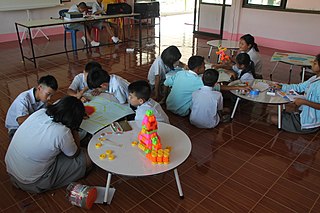
Project-based learning (PBL) is a student-centered pedagogy that involves a dynamic classroom approach in which it is believed that students acquire a deeper knowledge through active exploration of real-world challenges and problems. Students learn about a subject by working for an extended period of time to investigate and respond to a complex question, challenge, or problem. It is a style of active learning and inquiry-based learning. PBL contrasts with paper-based, rote memorization, or teacher-led instruction that presents established facts or portrays a smooth path to knowledge by instead posing questions, problems, or scenarios.
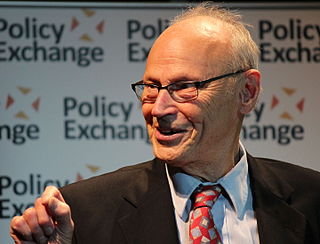
Eric "E. D." Donald Hirsch Jr. is an American educator, literary critic, and theorist of education. He is professor emeritus of humanities at the University of Virginia.
The United States Medical Licensing Examination (USMLE) Step 1 is a standardized test that assesses a medical student's knowledge of basic science concepts and their application to clinical medicine. The exam is one of three components required for medical licensure in the United States and is typically taken by students after their second year of medical school.

Hurst-Euless-Bedford Independent School District is a K-12 public school district based in Bedford, Texas (USA). The district serves the city of Bedford, most of the cities of Euless and Hurst, and small parts of North Richland Hills, Colleyville, Fort Worth, and Arlington. The district operates twenty-one elementary schools, five junior high schools, two traditional high schools, and additional specialized facilities.

Science, technology, engineering, and mathematics (STEM) is an umbrella term used to group together the distinct but related technical disciplines of science, technology, engineering, and mathematics. The term is typically used in the context of education policy or curriculum choices in schools. It has implications for workforce development, national security concerns, and immigration policy, with regard to admitting foreign students and tech workers.
Civitas: The Institute for the Study of Civil Society is a British think tank working on issues related to democracy and social policy. It was founded by David George Green.

The South Shore Charter Public School (SSCPS) is a public charter school located in Norwell, Massachusetts, United States. SSCPS serves students from grades K–12. The K–12 system is divided as follows: Level I (K–2), Level II (3–4), Level III (5–6), Level IV (7–8), and High School (9–12). The school's student population, as of the 2022–2023 academic school year is 1,009 students in grades Kindergarten-12.
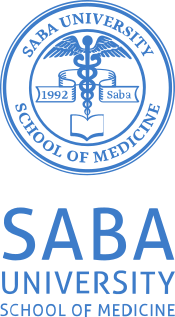
Saba University School of Medicine is a private for-profit offshore medical school located on Saba, a special municipality of the Netherlands in the Caribbean. Saba University confers upon its graduates the Doctor of Medicine (MD) degree. It is owned by R3 Education, Inc. which also owns St. Matthew's University and the Medical University of the Americas

The École du Louvre is a selective institution of higher education and prestigious grande école located in the Aile de Flore of the Louvre Palace in Paris, France. It is dedicated to the study of archaeology, art history, anthropology and epigraphy.

The Citizens Foundation (TCF) is a non-profit organization, and one of the largest privately owned networks of low-cost formal schools in Pakistan. The foundation operates a network of 1,833 school units, educating 280,000 students through over 13,000 teachers and principals, and over 17,400 employees. Approximately 94% of the foundation's expenditure is allocated to the Education program. In addition, TCF also conducts a literacy and numeracy skill development programme in communities linked to its schools which has taught reading and writing to over 160,000 adults.

Reading is the process of taking in the sense or meaning of letters, symbols, etc., especially by sight or touch.
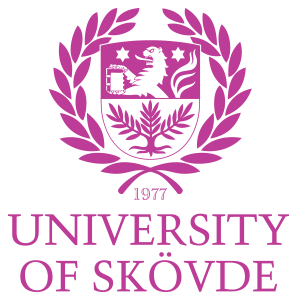
The Tepper School of Business is the business school of Carnegie Mellon University. It is located in the university's 140-acre (0.57 km2) campus in Pittsburgh, Pennsylvania.
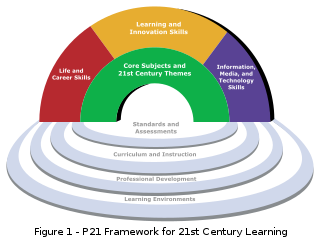
21st century skills comprise skills, abilities, and learning dispositions that have been identified as being required for success in 21st century society and workplaces by educators, business leaders, academics, and governmental agencies. This is part of a growing international movement focusing on the skills required for students to master in preparation for success in a rapidly changing, digital society. Many of these skills are also associated with deeper learning, which is based on mastering skills such as analytic reasoning, complex problem solving, and teamwork. These skills differ from traditional academic skills in that they are not primarily content knowledge-based.

Power ISA is a reduced instruction set computer (RISC) instruction set architecture (ISA) currently developed by the OpenPOWER Foundation, led by IBM. It was originally developed by IBM and the now-defunct Power.org industry group. Power ISA is an evolution of the PowerPC ISA, created by the mergers of the core PowerPC ISA and the optional Book E for embedded applications. The merger of these two components in 2006 was led by Power.org founders IBM and Freescale Semiconductor.
References
- ↑ "Core Knowledge Foundation". Annenberg Classroom. 2019-02-15. Retrieved 2023-02-03.
- ↑ "Core Knowledge Foundation Archives". CIVICS RENEWAL NETWORK. Retrieved 2023-02-03.
- ↑ "Our Approach - Core Knowledge". Core Knowledge Foundation. Retrieved 2023-02-06.